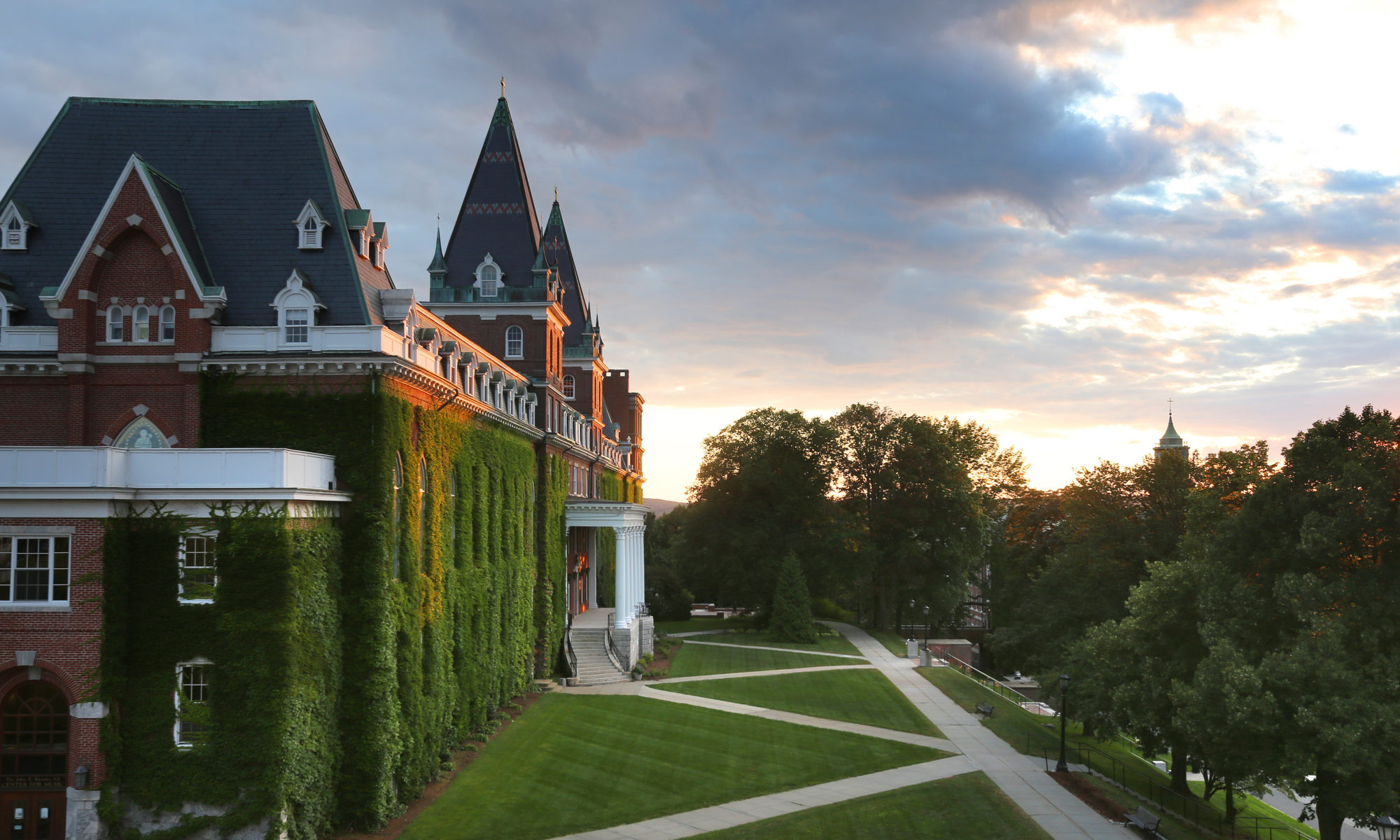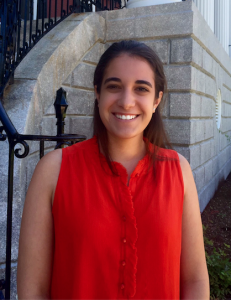
Freshman Year at Holy Cross: Commonly Asked Questions and My Experience
While many first-year students have older siblings to learn from as they venture off to college, I am the oldest in my family, so going off to college was a completely new experience for me and my family. While I felt completely prepared to leave high school and begin this new chapter in my life, there was still so much that I was unsure of — both about college in general and about Holy Cross. Here are some of the things I have learned so far from being a first-year student on the Hill…
What’s it like to be a first year student?
One of my biggest fears when going into college was leaving my high school friends — people I had known my entire life — and making a new group of friends. I’m from a pretty small town and I had gone to school with the same people since pre-school, so making new friends was a pretty big change for me. Within the first few days of school this worry of mine eased. Everyone is so open to meeting new people and making new friends during the first few weeks of school, so if you are worried about making friends, don’t be! Just say “hi” to people! I’ve met such amazing people here at Holy Cross and my best advice is to join clubs and activities that you love, branch out and try new things, and just talk to people!
What is your experience with classes and what are professors like?
Classes at Holy Cross are hyped up to sound impossible — they’re not! From my experience, as long as you pay attention, study, and do your homework, everyone is able to manage their classes and still have time for activities and a social life. Attending every class is more than half of the battle, so be sure to make that a priority. Classes are definitely challenging, but they are manageable. I view the challenging parts of classes as a positive thing because I know that I am learning new material and skills and it forces me to put forth my best effort. Additionally, the professors are really amazing! All of my professors so far this year have really cared about my learning and success. They are available, provide great feedback, and get to know their students. I have grown so much as a writer because of my CRAW and Poetry classes that pushed me to think outside of the box. Although that was initially hard to do, the challenge pays off. I can really sense the value in my college education.
Picking classes is another aspect of coming to Holy Cross that many students seem to worry about. My advice would be to have backup plans, just in case you don’t get your first choice of courses. For both first and second semester, I did not get all four of the classes that I wanted, but since I had backups picked out in my “Moodle” backpack, I’ve gotten to take some pretty cool classes that I wouldn’t have taken otherwise. The bottom line is that everything will work out with course selection and especially as a freshman, you have plenty of time to fill your core requirements! Don’t only take classes that you know you’re good at, definitely try some new things and try to broaden your horizons!
What is your Montserrat experience like?
Like many other students, when I first got my assignment for my Montserrat I was a little disappointed, because it wasn’t my first choice. However, I ended up really liking my Montserrat class because it focuses on a topic that none of my other classes cover. Also, because you spend the full year with the same class and professor, it’s really nice to have that sort of consistency at a time where everything else is changing.
What is it like to live with someone “random” as a roommate?
I was so nervous about who my roommate would be. Even after I got my assignment and communicated with my roommate over text, I still wasn’t totally sure what she would be like. I went into college with the expectation that my roommate and I would be best friends and although that isn’t the case, I still love my roommate and have had a great experience! We live very well together and get along great. It’s actually really nice to have somebody outside of your friend group to come home to every day and talk with. Many of my friends had similar experiences to me, while a few ended up being good friends with their roommates. Either way, the majority of roommates at Holy Cross have a positive experience.
Is Holy Cross living up to your expectations so far?
Yes, and more! I knew that I would really like HC, but it truly has exceeded my expectations and I really do love it. There is something so unique about the opportunities and the people here. You aren’t just a number at Holy Cross, you’re a person with a story. It’s so nice going to a small school and seeing people that you recognize all over campus!
I have really enjoyed getting involved here with SPUD, Admissions Outreach, and Eucharistic ministry. I went on a retreat at the Joyce Contemplative Center and hope to attend another. I also want to join club swimming and try out some more new things! I’m excited about the opportunities that the COES business overlay provides and the Maymesters look amazing. There is so much to do and try here and there is something for everyone.
Takeaways? Final Advice?
Don’t forget to stay on top of your Holy Cross email. A lot of important information is communicated that way. Get involved! That’s how you’ll meet and befriend people. Seriously, don’t worry about things like classes, making friends, and roommates. It will all work out and Holy Cross provides students with many resources along the way. Professors are always willing to help out during office hours and older students and peers are always happy to answer questions that first-year students might have. Try new things, say “hi” to people, try your hardest in classes, and everything will work out better than you ever imagined!
written by Katherine Barrette ’21




